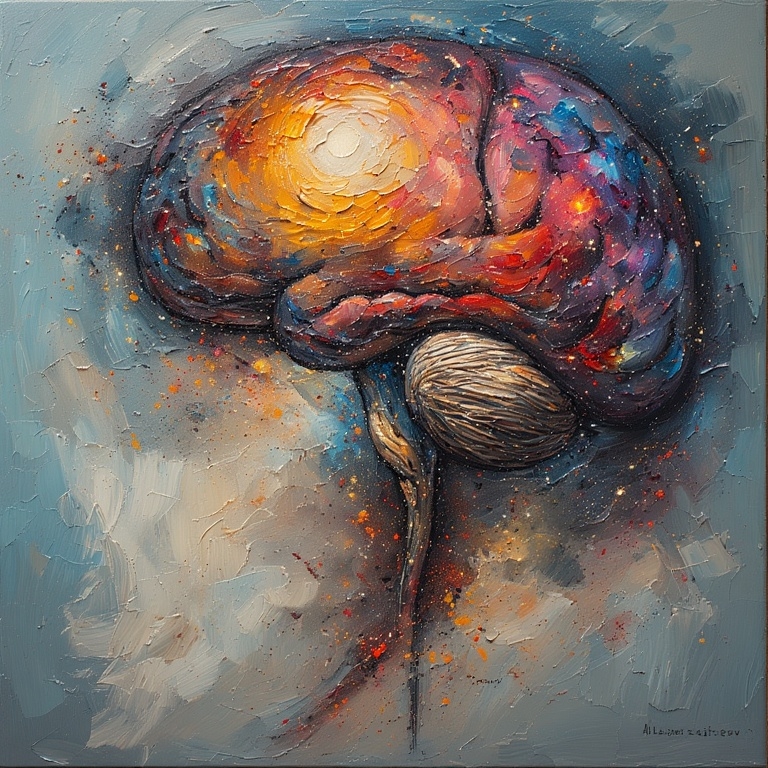The Silent Yet Powerful Mental Health Strength In Sports
The Psychological Backbone of Athletic Performance
Mental Resilience in Rehabilitation and Long-Term Wellness
Understanding Mental Health in Sports, Fitness, and Recovery
Mental health is the invisible architecture of athletic success. While physical conditioning, tactical preparation, and nutrition dominate the spotlight, the psychological forces that shape performance, motivation, and recovery often remain in the shadows. In sport, fitness, and rehabilitation, mental health is not a peripheral concern—it is central to every outcome. This article offers a comprehensive, multi-dimensional exploration of mental health across the athletic lifecycle, revealing how emotional resilience, cognitive clarity, and behavioral stability are foundational to sustainable excellence.

Mental Health – The Unseen Driver of Physical Excellence
Mental health in sport influences how individuals handle stress, relate to others, make decisions, and recover from adversity. In high-performance environments, mental health determines consistency, adaptability, and longevity. Athletes with strong psychological foundations are better equipped to manage pressure, maintain focus, and bounce back from setbacks. Conversely, untreated mental health issues—such as anxiety, depression, or trauma—can manifest as physical injury, performance decline, or career derailment. Recognizing mental health as a performance variable is essential for holistic athlete development.
Motivation, Discipline, and Burnout
Motivation is the spark that ignites effort, but it is inherently unstable—shaped by goals, context, and emotional state. Discipline sustains effort when motivation wanes, but even discipline has limits. When athletes push beyond those limits without psychological support, burnout emerges. Burnout is not mere fatigue—it is emotional exhaustion, depersonalization, and a diminished sense of accomplishment. It often stems from chronic stress, perfectionism, and lack of recovery. Preventing burnout requires proactive mental health strategies, including rest cycles, emotional check-ins, and purpose-driven training. Coaches and athletes must learn to distinguish between productive discomfort and destructive overload.
Body Image and Self-Perception
Athletes are frequently judged by their bodies—by coaches, fans, sponsors, and themselves. This scrutiny can distort self-perception, leading to body dissatisfaction, anxiety, and disordered eating. In aesthetic or weight-class sports, the pressure to conform to idealized standards is especially intense. Social media amplifies these pressures, creating unrealistic comparisons and reinforcing harmful norms. A mentally healthy training environment promotes body neutrality, functional goals, and psychological safety. Athletes should be encouraged to value their bodies for what they can do—not just how they look. Education on body diversity, media literacy, and self-compassion is critical to reshaping athlete self-image.

Performance Anxiety and Pressure Management
Competition is inherently stressful. The stakes—personal, financial, reputational—can trigger anxiety that impairs motor skills, decision-making, and confidence. Performance anxiety is not a flaw—it is a natural response to perceived threat. However, unmanaged anxiety can spiral into avoidance, self-sabotage, or panic. Effective pressure management involves psychological skills training, including visualization, breath control, cognitive reframing, and exposure therapy. Athletes must learn to interpret anxiety as readiness rather than danger. Coaches play a pivotal role in normalizing stress responses and creating environments where athletes feel supported, not judged, under pressure.
Injury Psychology – Coping with Physical Setbacks
Injury is more than a physical event—it is a psychological rupture. It disrupts routine, identity, and future plans. Athletes may experience grief, fear, anger, and isolation. The mental toll of injury can be greater than the physical pain, especially when recovery is prolonged or uncertain. Psychological support during rehabilitation is essential. This includes goal adjustment, emotional validation, and identity reconstruction. Mental health professionals should be integrated into rehab teams, not treated as optional add-ons. Recovery is not just about returning to play—it is about restoring confidence, agency, and emotional equilibrium.

Identity and Self-Worth in Sport
Athletes often define themselves by their performance. Wins validate, losses erode. This performance-based identity is fragile and unsustainable. When results falter or careers end, athletes may face existential crises. Building a multidimensional identity—one that includes relationships, values, and interests beyond sport—is key to long-term mental health. Coaches and institutions must foster environments where athletes are valued as people first, performers second. Identity work should be part of athlete development, not just post-retirement counseling. A strong sense of self buffers against the volatility of competition and enhances overall well-being.
Sleep, Recovery, and Cognitive Function
Sleep is the foundation of mental and physical recovery. It regulates mood, memory, decision-making, and hormonal balance. Yet athletes often sacrifice sleep for training, travel, or competition. Sleep deprivation impairs reaction time, emotional regulation, and injury recovery. Chronic sleep issues can lead to depression, anxiety, and burnout. Sleep hygiene—consistent routines, screen management, and relaxation techniques—should be treated as a performance strategy. Coaches must prioritize rest as rigorously as training. Recovery is not passive—it is an active process that requires psychological attention and cultural reinforcement.

Overtraining Syndrome – Psychological Dimensions
Overtraining is not just a physical phenomenon—it has profound psychological symptoms. These include irritability, apathy, insomnia, and loss of motivation. Athletes may feel trapped in a cycle of diminishing returns, pushing harder despite worsening outcomes. Overtraining often stems from perfectionism, fear of failure, or external pressure. Monitoring psychological markers—mood, motivation, emotional tone—is as important as tracking physical metrics. Recovery from overtraining requires rest, psychological support, and sometimes a redefinition of success. It is a warning sign that the athlete’s mental health ecosystem is out of balance.
Social Support and Team Dynamics
Human connection is a powerful buffer against stress. Teams that foster psychological safety—where athletes feel heard, respected, and supported—perform better and recover faster. Toxic dynamics—bullying, favoritism, exclusion—erode mental health and undermine cohesion. Coaches must cultivate inclusive cultures, model empathy, and address conflict proactively. Peer support programs, mentorship, and open dialogue strengthen team resilience. Social support is not a luxury—it is a performance asset. Athletes thrive when they feel they belong.
Coaching Psychology – Influence and Responsibility
Coaches are not just tacticians—they are psychological architects. Their words, tone, and expectations shape athlete self-concept, motivation, and emotional health. Ethical coaching integrates mental health awareness, avoids humiliation-based tactics, and promotes autonomy. Coaches must be trained in emotional intelligence, trauma-informed practice, and mental health literacy. Their influence is profound—positive or negative. A coach who understands the psychological landscape can unlock potential, prevent harm, and build lasting trust.

Gender-Specific Mental Health Challenges
Female athletes face unique psychological pressures—body image, media scrutiny, underrepresentation, and gendered expectations. Hormonal cycles, reproductive health, and societal bias intersect with sport in complex ways. Mental health support must be gender-informed, addressing these realities with sensitivity and specificity. This includes access to female practitioners, inclusive language, and tailored education. Equity in mental health is not just about access—it’s about relevance. Supporting female athletes requires understanding their lived experience.
Youth Athletes – Early Intervention and Education
Young athletes are especially vulnerable to psychological stress. They are still developing emotionally, cognitively, and socially. Early specialization, parental pressure, and identity fusion can lead to anxiety, burnout, and dropout. Mental health education should be embedded in youth sport—teaching emotional literacy, coping skills, and self-worth. Coaches and parents must prioritize development over dominance. Early intervention prevents long-term harm and fosters healthier sport cultures. Youth sport is not just a pipeline—it is a crucible for character.

Retirement and Transition – Life After Sport
Retirement is a psychological reckoning. Athletes lose structure, identity, and community. Depression, anxiety, and existential distress are common. Transition programs must address career planning, emotional processing, and social reintegration. Peer mentorship, counseling, and storytelling help athletes navigate this shift. Retirement is not an end—it is a transformation. Supporting athletes through it is a moral and practical imperative.
Cultural and Societal Influences on Mental Health
Culture shapes how mental health is perceived and addressed. In some contexts, emotional vulnerability is stigmatized. Masculinity norms, racial bias, and socioeconomic factors influence access and attitudes. Reform requires culturally sensitive education, inclusive support systems, and diverse representation. Mental health must be contextualized—not universalized. Understanding cultural nuance is essential for effective care.
Mental Health in Adaptive and Paralympic Sport
Athletes with disabilities face unique psychological challenges—access barriers, societal bias, and identity negotiation. Mental health support must be tailored, inclusive, and integrated into all levels of adaptive sport. This includes trauma-informed care, peer support, and advocacy. Adaptive athletes are not just resilient—they are pioneers. Their mental health deserves equal attention and respect.

Technology and Mental Health Monitoring
Digital tools now track mood, sleep, and stress. While promising, they must be used ethically—with athlete consent, data privacy, and psychological interpretation. Technology cannot replace human empathy. It should augment, not automate, mental health care. Coaches and practitioners must understand the limits and possibilities of digital monitoring.
Nutrition and Mental Well-Being
Diet affects neurotransmitter function, mood, and energy. Deficiencies in omega-3s, B vitamins, or iron can mimic depression. Over-restriction or poor fueling can exacerbate anxiety and fatigue. Nutrition plans should support both physical and psychological health. Dietitians must collaborate with mental health professionals to create holistic strategies.
Substance Use and Mental Health Risks
In high-pressure environments, some athletes turn to substances—painkillers, stimulants, alcohol, or recreational drugs—to manage pain, anxiety, or emotional distress. While these may offer temporary relief, they often mask deeper psychological issues and can lead to dependency, impaired performance, or long-term health consequences. Substance use in sport is not merely a disciplinary issue—it is a mental health concern. Prevention requires education, destigmatized access to psychological support, and early intervention. Athletes must be empowered to seek help without fear of judgment or career repercussions.

Mindfulness and Mental Training Techniques
Mindfulness is the practice of present-moment awareness without judgment. In sport, it enhances focus, emotional regulation, and stress resilience. Techniques such as meditation, journaling, breathwork, and body scanning are increasingly used by elite athletes to cultivate mental clarity and composure. These practices help athletes manage distractions, recover from errors, and stay grounded under pressure. Mental training is not a supplement—it is a skill set. Integrating mindfulness into daily routines builds psychological endurance and enhances overall well-being.
Institutional Responsibility and Reform
Sport organizations hold immense power over athlete culture. Their policies, priorities, and resource allocation shape how mental health is addressed—or ignored. Institutional reform means embedding mental health into governance, funding, staffing, and accountability structures. This includes mandatory education, confidential support services, and transparent protocols for crisis response. Organizations must move beyond reactive models and embrace proactive care. Mental health should be a strategic priority, not a public relations afterthought. True reform requires leadership, investment, and cultural change.

Ethical Sponsorship and Mental Health Messaging
Sponsors influence athlete behavior and public narratives. Ethical sponsorship means aligning with brands that promote mental well-being, avoid exploitative messaging, and support campaigns that destigmatize psychological challenges. Athletes should not be pressured to perform through pain or present false images of invincibility. Sponsorship can be a force for good—funding mental health initiatives, amplifying authentic stories, and modeling responsible engagement. The commercial side of sport must evolve to reflect the human realities behind performance.
Media Representation and Mental Health Narratives
Media coverage shapes public perception of athletes and mental health. Sensationalism, stigma, and reductive storytelling can harm individuals and reinforce cultural taboos. Responsible journalism highlights complexity—showing resilience, vulnerability, and recovery as part of the athletic journey. Media outlets must train reporters in mental health literacy, avoid harmful tropes, and prioritize ethical storytelling. Athletes deserve narratives that reflect their full humanity—not just their highlight reels.

Crisis Response and Suicide Prevention
Athletes are not immune to crisis. Depression, trauma, and suicidal ideation can affect anyone, regardless of status or success. Suicide prevention in sport requires trained staff, confidential access to help, and destigmatized pathways to care. Every organization should have a crisis protocol—clear, compassionate, and immediate. Peer support, mental health first aid, and trauma-informed environments save lives. Prevention is not just about awareness—it’s about readiness.
Research and Evidence-Based Practice
Mental health care in sport must be grounded in science. Ongoing research into athlete psychology, trauma, resilience, and intervention efficacy informs best practices and drives innovation. Collaboration between universities, sport bodies, and mental health organizations is essential. Evidence-based practice ensures that support is not anecdotal or improvised—it is strategic, measurable, and effective. Funding for research must be prioritized, and findings must be translated into policy and practice.
Building a Mentally Healthy Sport Culture
The future of sport lies in integration—not separation—of mental and physical health. This means:
- Education – Every stakeholder must understand the psychological dimensions of sport
- Access – Mental health services must be embedded, not outsourced
- Normalization – Talking about mental health should be routine, not radical
- Leadership – Coaches, administrators, and athletes must model vulnerability and care
A mentally healthy sport culture values humanity as much as performance. It recognizes that strength includes softness, and that resilience is built through connection, not isolation. This culture is not just better for athletes—it is better for sport itself.

Conclusion
Mental health is the silent strength behind every athlete’s journey. It shapes how they train, compete, recover, and evolve. By embedding psychological care into every layer of sport—from grassroots to elite—we move toward a culture that honors the full spectrum of human experience. This is not a trend—it is a transformation. The time for integration is now.
Join the Discussion
What role has mental health played in your athletic or coaching journey? What changes would you like to see in how sport systems support psychological well-being? Share your insights, stories, and ideas. Your voice matters—and it could help reshape the future of sport.
Hashtags
#MentalHealthInSport #AthleteWellbeing #FitnessMindset #RehabilitationResilience #TrainTheMind #SportPsychology #HolisticAthlete #BeyondTheBody #MentalStrengthMatters #RecoveryIsMentalToo #AthleteIdentity #CoachingEthics #YouthSportWellness #AdaptiveAthleteCare #SportCultureReform #MindfulTraining #InjuryRecoveryPsychology #PerformanceAnxietySupport #GenderEquityInSport #LifeAfterSport







7 Comments
Comments are closed.